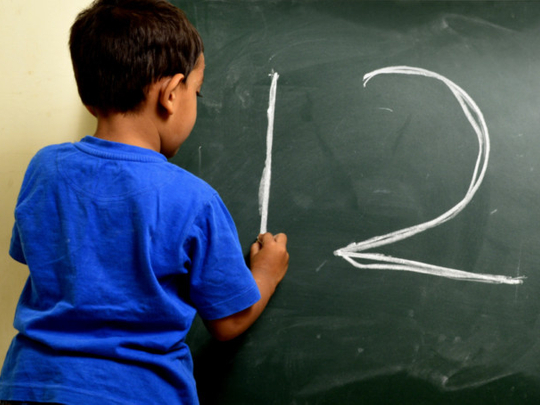
Abu Dhabi: Achievements are often highlighted over effort with schoolchildren being easily drawn into uncomfortable classroom dynamics, where academic performance dominates interactions.
Grades can become all-important markers in the classroom, with the risk that children who perform well become complacent and others suffer from diminished self-esteem.
This can lead to unpleasantness in a classroom that develops over time unless skilled teachers and interested parents step in, Abu Dhabi educators have said.
“Variations in educational ability and performance are a natural characteristic,” said Dr Usha Gupta, School counsellor at the Sunrise English Private School. ”Different children achieve at different levels but the key is to encourage each child to improve at their own pace.”
Peter Lugg, Principal of the Cambridge High School, said classes could be structured to help children progress at their own pace.
“Pupils can be grouped along with peers of similar ability and allowed to develop with them,” he said. “When a child begins to find a particular level easy, (s)he can be moved up to the next stage. This way, children do not feel overtly pressurised to progress too fast.”
No non-achievers here
However, educators should avoid using terms such as ‘non-achiever’ agreed Lugg and Gupta.
“The truth is every child excels in one field or another,” said Lugg. “So every child is an achiever in some way.”
The role of an educator then is to believe every child has the potential to improve.
This motto will also help keep teachers motivated about in doing their jobs properly believes, Ahmad Rai, a high-school Arabic teacher at the International Private School.
“Children will then pick up positive cues and beliefs from their teachers and learn to treat one another well,” he said.
For Rai, positive feedback is an integral part of his classroom methods.
“I can compliment one child for a particularly insightful answer and commend another for helping out a peer,” he said. “As educators, we have to consciously highlight children’s strengths at every possible opportunity.”
Negativity is demoralising
Just as a positive reinforcement will make a world of difference to a child’s self-esteem, so too will discouragement from a teacher actively contribute to a child’s withdrawal.
This could happen, for example, when a child who obviously does not know the answer is repeatedly picked to answer a question by the teacher, added Rai.
The right approach is to elicit responses from children who have a knack for the subject, or knowledge of the question being asked, said Lugg.
“When this is done, the child’s confidence grows,” he said. “A close-ended question with only one correct answer is also demotivating, because it shows a child’s lack of knowledge.”
Don’t compare
Constant comparison to peers is, on the other hand, is highly discouraging too, especially as it often translates into negativity in the classroom.
“A child who is compared to his peers by their family or teachers usually develops resentment towards higher-achieving students,” said Rai. “This is a complete no-no, as it not only wrecks the child’s self-esteem but also creates tension between peers.”
The wrong choice of a certain educational system could also greatly affect a child, he added.
The International General System of Secondary Education (IGCSE) curriculum, for example, adopts different methods of teaching to say the Indian-based Central Board of Secondary Education (CBSE) system.
“If a child who can excel in the IGCSE system is placed in another curriculum, it may suppress the child’s strengths and cause him to think that his peers are better,” he said.
“Therefore, whenever possible, parents must seek advice from educational counsellors before enrolling children within a particular system.”
Natural bonding tendencies
In the absence of polarising factors, however, Rai believes children have a natural tendency to bond with each other. An opinion, Lugg agrees with.
“We actively promote peer tutoring, where children who do well in one subject teach others who need assistance,” he said. “If different individuals excel in different subjects, each child gets a chance to teach and be taught, which equalises any differences in achievement between them.”












